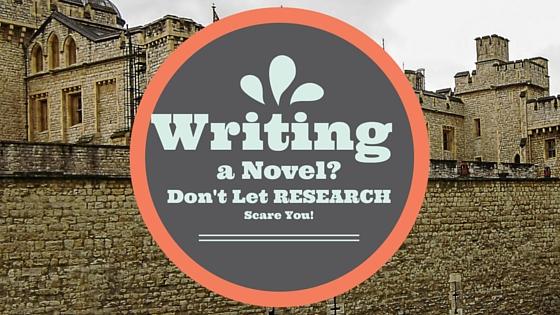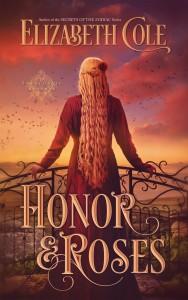Don’t Let Research Scare You! by Elizabeth Cole
February 23, 2016
Note From Rochelle
Dear Writers,
Greetings!
I’m delighted to welcome author Elizabeth Cole to the blog. She has a new book coming out tomorrow, Honor & Roses (Swordcross Knights #1). And today, she’s writing about her approach to research.
If you’ve ever felt daunted by research, today’s tip is for you. It’s geared toward novelists, but it will help anyone who must research a project. Her advice will help you save time and angst.
Happy Writing!
Rochelle, the Write Now! Coach

Writing a Historical Novel?
Don’t Let Research Scare You
by Elizabeth Cole
 I’m a writer of historical romance, and not surprisingly, that can involve a lot of research. My newest book, Honor & Roses, is set in medieval Britain in the middle of the 1100s — right about the time the country was losing its mind due to a little squabble over the throne between King Stephen and the Empress Maud. It was a MESS.
I’m a writer of historical romance, and not surprisingly, that can involve a lot of research. My newest book, Honor & Roses, is set in medieval Britain in the middle of the 1100s — right about the time the country was losing its mind due to a little squabble over the throne between King Stephen and the Empress Maud. It was a MESS.
That means there’s a lot of history to cover! How does a writer decide what to research? How do you find sources? What if there’s disagreement? When do you stop researching and start writing? Well, that’s what I’m here to tell you…
Plan your Attack
If you’re writing a story, it’s likely that you only need to do enough research in order to finish that story. Don’t get caught in a trap of endless research. List specific things you need to know before you get lost in time! Some examples of specific topics to research:
- What was a laborer’s daily wage in 1890’s Maine?
- Did women hold property rights in Wyoming in 1863?
- What were the major battles in the Succession Crisis in England in the winter of 1140/1?
- When did the word “mesmerism” get invented, and how popular was the concept?
See how targeted these questions are? That’s because they fill a need in whatever story you’re writing. Don’t go into a library with a goal like “I need to learn about the American Civil War.” That’s too vague, and you could literally spend the rest of your life researching it without finishing. So make that list, and check it twice!
Conduct your Historical Research
Usually, if you’ve got to do some historical research, you’ve already chosen a time and place to study, and you know what major events took place around then. Early research is exciting and fun. It can get overwhelming too. My advice is to keep a running file of all the sources you use (books, articles, diaries, whatever) so you don’t get stuck reading the same things over and over. I also suggest talking with a professional. Librarians are great and can offer advice when it comes to finding new sources you might not have thought of. Depending on what you’re studying, a local historian or historical society may have all the information you need. If you visit a historic building or site relevant to your story, ask the docents and volunteers about the history of it. Don’t assume that what they say on the tour is all they know! And again, always go back to your list of questions (and add new questions as you keep writing). Research is often about making connections and finding new doorways. Ask others for help and advice, and be up front about exactly how much information you’re looking for. People enjoy hearing that someone is writing a book about a topic they love! Nearly everyone I’ve worked with was eager to help.
Know When to Stop
Research can be fun, and very rewarding in itself. It can also be a crutch. Are you still in the research phase of your novel after five years? Ten? Maybe you’re not researching any longer — you’re procrastinating. Remember that your goal is to WRITE A NEW THING. So after you’ve answered most of your questions on your list, it’s time to sit down and write! Just write. Use the research you’ve done to fuel your story but don’t get stuck if you forget a little detail. And don’t interrupt your writing flow to check a source. Instead, use a trick I call bracketing. As you’re writing, if you hit a part of the story where you need specific historical information but you don’t have it handy, just bracket it out and keep writing. It looks like this: “But George!” said the woman. “How can you be standing here? I heard you died in the Battle of [tk YEAR AND LOCATION]. I wore black for six months!” See how that works? You can write continuously, focusing on the emotional part of a scene, without breaking your flow to go figure out where George supposedly snuffed it. Also, note the “tk” in the brackets. That’s a cool trick because the letter pair “tk” occurs nowhere in the English language. So if you search for “tk” in your document, you can catch all the places you put in brackets! Neat, yes?
So that’s a quick and dirty primer on how to incorporate research into your writing without letting it take over. Obviously, depending on what you’re researching, the sources and methods will vary a lot, so don’t be shy about asking for help. But most of all, keep writing!
 About the author. Elizabeth Cole is an author of historical romance. She can be found hanging around museums, coffeeshops, and graveyards…but not after dark. She is a full-time writer now, but before that she worked in bookshops, libraries, archives, or anywhere there were books to be read and cared for. Learn more and sign up to get free books at www.elizabethcole.co
About the author. Elizabeth Cole is an author of historical romance. She can be found hanging around museums, coffeeshops, and graveyards…but not after dark. She is a full-time writer now, but before that she worked in bookshops, libraries, archives, or anywhere there were books to be read and cared for. Learn more and sign up to get free books at www.elizabethcole.co
Elizabeth Cole’s new book is Honor & Roses (Swordcross Knights #1). This medieval romance will be available on February 24 at all ebook retailers.








